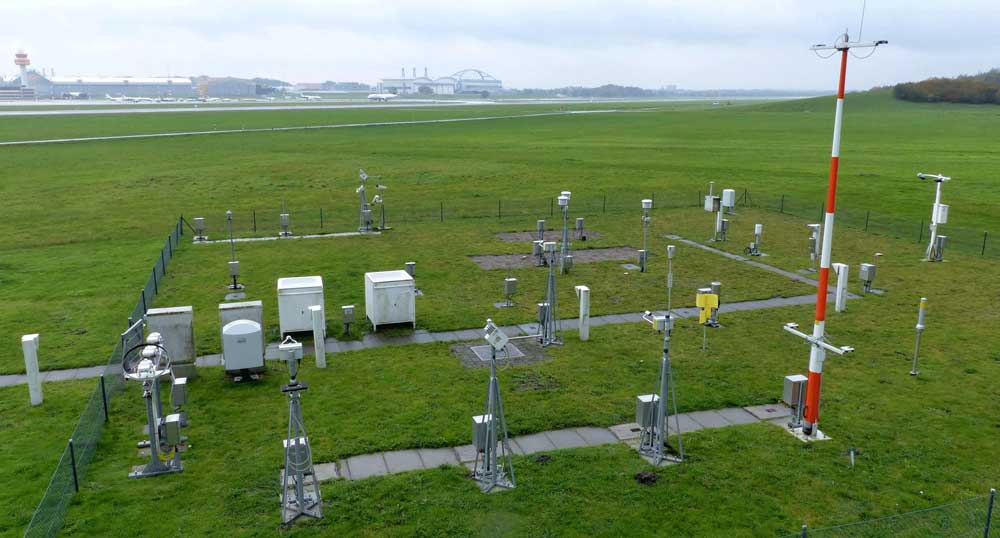Climate Change Support for Agriculture: Is France a step ahead?
By Mark Parnell, Independent farm advisor
Differences comprise farming practices and extend also to agricultural research and how results are communicated to farmers and other professionals in the agriculture industry.
On the subject of climate change and the implications for agricultural production this is no different. It was on a trip to the French outdoor machinery exhibition Innov-Agri in 2018 that I first was introduced to the advances and approach of France on this subject. My first impression of their work and approach was already very positive.
The presentation I had seen at Innov-Agri with approximately 50 other people was made by Frédéric LEVRAULT, a national expert on the subject of climate change for agriculture, along with a regional agricultural representative. The information presented on climate change for the total country and at a regional level with additional explanations for specific crop groups was direct and relevant for the farmers attending.
Still what had impressed me the most from the presentation on that day was the strong engagement shown by the local regional agricultural representative. He was a young professional and one could see he was working to the principles and approach that:
- The impacts of climate change and adapting to these impacts were already a very important part of his work for his region.
- Many of the challenges and questions of climate change as they relate to agriculture in France already impact today and to a timeframe of the next five years (Not just long term risks).
- He took a “let’s roll up our sleeves and get to work” approach.
- Plus he spoke with confidence, since he knew that he could base his regional work and recommendations on a solid foundation of agri-climate research that had already received region specific data and analysis.
Early start on climate research in France
Following the trade fair I read a number of documents from France on both research and information material from local chambers of agriculture; the quality of this work strengthened my view that France is well advanced in this domain. This view does not represent a detailed comparison to other countries; it is a positive view on the French work only.
France started more than 10 years ago on a large multi-disciplinary project to study the impacts to agriculture and forestry from climate change. The project “CLIMATOR 2007-2010” and its subsequent report (Livre Vert du Projet CLIMATOR) documented very clearly the subject matter for agriculture including the main topics of: climate impact on major crop types and forestry, climate impacts for 7 main regions of France, history, and sub-topics including among others irrigation, soil organic matter, plant diseases, and crop yield.
The CLIMATOR report itself is not updated; it is through the two tools ORACLE and ClimA-XXI that the research has progressed and been brought to a more local geographical level for agriculture.
Agriculture and climate: cooperation of experts
The early start is not the only key to France’s strong progress. France has also made a number of very good decisions in the organisational way that agricultural and climate experts and researchers work together. This has led to a strong level of collaboration and also a result where information and recommendations generated are both usable and relevant. Important points from the last years are:
- Agriculture is the priority for this specific work. Naturally weather data is one key input, but the two key tools are very much aimed for serving agriculture and details and recommendations for crop production and livestock production are key elements.
- Results are brought to a local geographic level.
- Agricultural agencies (at Regional and Department level) had been given a lead role in coordinating the deployment and later operational issues of the two key tools (ORACLE and ClimA-XXI) for their geographic area.
- It is a support “from agriculture - to agriculture”.
Maintaining a focus on short-term developments
France had taken a consequent approach to creating clear and usable information with a focus on agriculture. Near term climate change impacts take an important role in the work and information for agriculture in France. For everyone, I believe, it is through a near-term approach that makes it easier to address and understand the issue of climate change (As compared to only considering the longer-term risks, which is more typically the focus of news reports). There is work to do right away for agriculture, and this is on the current and near-term impacts: crop variety development, water management, and many more.
Considerations for involving people within the climate change topic do not stop with research. Universities and Colleges need to account for how many areas of study for their students can be impacted and how in some cases even new areas of study may be created.
In a second article Frédéric Levrault describes in more detail the challenges France is facing on climate change issues for agriculture. Frédéric Levrault played an important role in the preparation of the CLIMATOR project. With his long experience he was active in the progression in France to the two climate related tools currently used for supporting agriculture. He explains in detail the current tools, the progress in rolling out these tools to an increasing are of France, and overall challenges.
In France, as in the rest of Europe, farmers and their professional managers have now clearly understood that adapting agriculture to climate change has become absolute essentially.
Find the article "Two tools to help every farmer understand clearly climate change" by Frédéric Levrault on: https://www.dlg.org/en/agriculture/topics/dlg-agrifuture-magazine/knowledge-skills/two-tools-to-help-farmers-understand-climate-change




